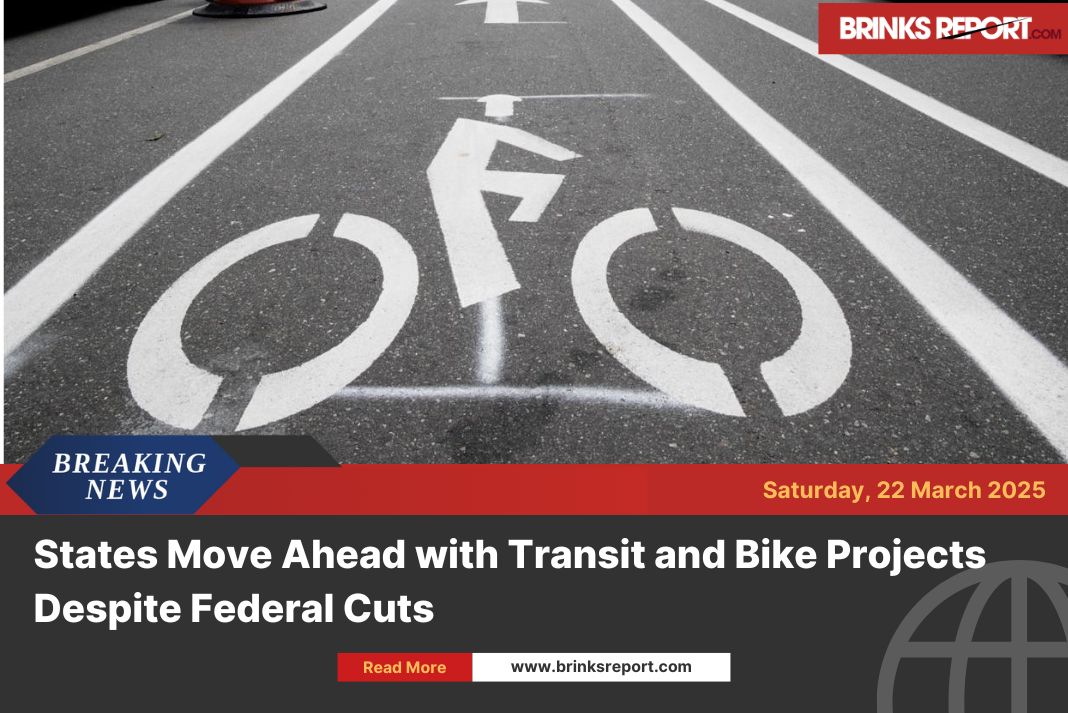
At a recent bicycle advocacy summit in Washington, D.C., attendees received a surprising email: President Donald Trump had stopped federal funding for bike lanes. His administration has been cutting funds for green energy projects supported by former President Joe Biden, which also included funding for bike paths and public transit.
In response, several states decided to push forward with their own environmentally friendly transportation projects. California, Illinois, Maryland, Michigan, Minnesota, New York, and Pennsylvania formed the Clean Rides Network, a group focused on expanding public transit and bike infrastructure.

Justin Balik, a leader in the Clean Rides Network, believes that states must take action on climate-friendly transportation. “These changes are necessary, and now they’re more urgent than ever,” he said. He called state transportation departments the “next frontier” for climate advocacy.
Even though Colorado was not one of the original seven states in the Clean Rides Network, it has taken a strong stance on green transportation. In 2021, Governor Jared Polis introduced a policy requiring that any large-scale transportation project increasing vehicle traffic must also include an environmentally friendly alternative. This policy led to the cancellation of two major highway expansion projects, saving money that was instead used to improve bus services.
This approach aligns with the $1.1 trillion bipartisan infrastructure law signed by Biden. Under that law, Denver received a $150 million federal grant to build a rapid transit bus line. However, there is concern that states may now have to fund such projects on their own if federal support continues to decline.
“If your state cares about climate change, it must take the lead and invest in transportation projects that cut emissions,” said Matt Frommer, a transportation policy expert.
Other states are following Colorado’s example. Minnesota has adopted a similar rule, and Maryland is working on passing its version of the law. Supporters argue that these policies not only benefit the environment but also save money. A study in Colorado estimated up to $40 billion in savings from better air quality and reduced traffic congestion.
However, some business groups and road construction advocates oppose these policies. Mike Sturino, head of the Illinois Road and Transportation Builders Association, argued that prioritizing green projects could delay necessary road repairs.
Despite these challenges, more states—including conservative ones—are considering eco-friendly transportation policies. Rising transportation costs are a big concern for people, with studies showing that after housing, transportation is the second-largest expense for many families.
Miguel Moravec from the nonprofit RMI pointed out how expensive driving has become. “Forget the cost of eggs—driving a car has never been more expensive,” he said. RMI has even developed a tool to help states estimate cost savings from green policies.
Also See: The US Federal Reserve Keeps Interest Rates Unchanged—See How It’s Done Impacts You!
Other states are also taking action. Virginia scores transportation projects based on factors like safety and environmental impact, Utah is expanding its public transit system, and Montana is making cities more walkable through land use and zoning reforms.
Muhammed Patel, a transportation advocate, emphasized that states have the power to decide their own transportation policies. “Thankfully, states have control over their transportation systems,” he said. “This gives them the flexibility to make changes.”












